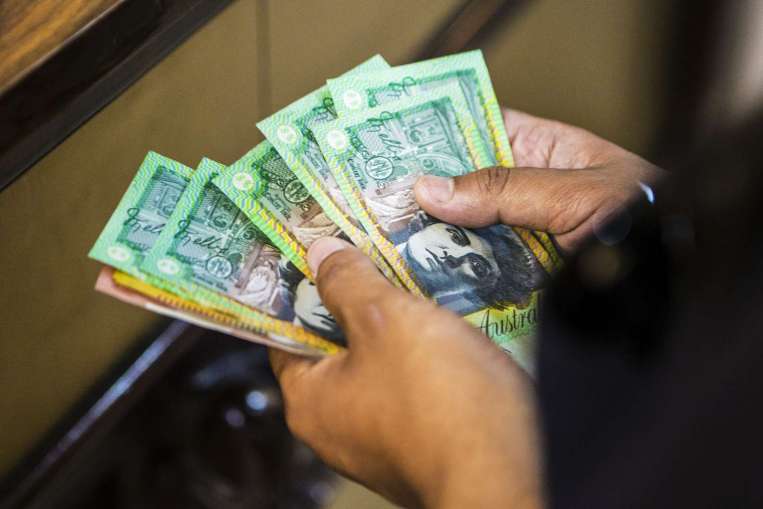- Australian Business Conditions Jump to 2008 High in Show of Strength
Australian business conditions jumped to the highest level since February 2008, signaling the economy could be set to strengthen.
A gauge of business conditions — measuring hiring, sales and profits — jumped to 14 in March from 9 in February, the highest reading since January 2008, the National Australia Bank Ltd. survey showed. The index has gyrated in the first three months of the year and the March reading may have been influenced by a cyclone that hit Queensland late in the month, curbing responses from the state, NAB said. Business confidence slid to 6 from 7.
“Even so, conditions have improved almost across the board to levels that suggest a strong economy in the near-term,” said Alan Oster, chief economist at NAB. “That includes Western Australia, which has been looking better of late and suggests the worst of the mining downturn may be behind us.”
The Reserve Bank of Australia closely monitors business conditions as they reflect the immediate environment firms are operating in and give a snapshot of the economy at the time. Policy makers have cut interest rates to a record-low 1.5 percent to encourage industries outside mining where an investment boom is drawing to a close.
Today’s report, which surveyed more than 410 firms from March 27 to March 31, showed the improvement in business conditions was mainly driven by services and wholesale industries. There’s also been a rebound in the prices of iron ore and coal.
Retail Concern
“The mining industry has been particularly impressive, having lagged well behind in recent years,” Oster said. “In contrast, the retail industry continues to be a concern with conditions falling further, dropping into negative territory. The apparent weakness in retail is driving our relatively downbeat outlook for consumption.”
Employment conditions were unchanged in the month, although holding at a level that suggests a healthier labor market than official statistics, Oster said. Australia’s unemployment rate jumped to 5.9 percent in February, the highest since the start of last year.
Business conditions soared in January, then fell in February as it gave back those gains, and are now surging again amid unusual volatility.
“There is still cause to be cautious about the longer-term outlook, particularly as other growth drivers, including liquefied natural gas exports, commodity prices and housing construction, begin to fade,” Oster said. “Meanwhile, the RBA has emphasized its financial stability concerns, which are expected to keep them on hold for the foreseeable future.”

 Forex3 weeks ago
Forex3 weeks ago


 Naira2 weeks ago
Naira2 weeks ago
 Billionaire Watch2 weeks ago
Billionaire Watch2 weeks ago




 Naira2 weeks ago
Naira2 weeks ago




 Naira2 weeks ago
Naira2 weeks ago




 Naira1 week ago
Naira1 week ago




 Naira4 weeks ago
Naira4 weeks ago




 Naira3 weeks ago
Naira3 weeks ago




















